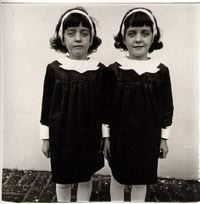PART 2
PLEASE NOTE: unauthorised copying of excerpts of the book constitutes copyright infringement. Mr.Burr personally gave us express permission to reprint those for this venue only.
PS: Chandler, for your new book “The Perfect Scent” you followed two different paths: the path of the celebrity scent (for Sarah Jessica Parker for Coty) and the path of the perfumer’s vision for a high-end brand (Jean Claude Ellena for Hermès).
Which one was more fun and which was more challenging, journalistically speaking?
CB: They were as completely different experiences as they could be and still be, in both cases, spending a year inside a perfume making process. Ellena’s story I tell from the perfumer’s perspective, Sarah Jessica’s from that of the creative director, so there you have a fundamental difference. The only time I spent with Laurent and Clément, her perfumers, was when they were with her. I’m going to let the book speak on this one; decide for yourself which you think was more interesting. I’ve already heard vastly different opinions.
.jpg)
PS: How viable are celebrity scents in your own opinion. Most are bought by fans who want to emulate their idol and are consquently frowned upon by perfume lovers who refuse sometimes to even try them out! However in my personal opinion there is no blanket description: some are good (like Lovely), some are horrible. Why is this, in your opinion and experience getting to know the process of creating one?
CB: I agree completely. Hilary Duff is a very good perfume. So is Midnight Fantasy. The Kimora Lee Simmons Goddess is beyond-belief bad. I do think celebrity perfumes are still viable and will remain so because they’re simply such a good, effective way for famous people to monetize their pure celebrity. There simply is no better mechanism by which to do this.
PS: Jean Claude Ellena is the darling of the internet-reading perfumephile. I am a fan of his perfumes as well. However, theres is the impression that what with his numerous interviews and constant media exposure and his habit of showing his “tricks” of expertise to awe-stricken journalists that he has become a bit of the latest conjurer: to be admired for what he hides in his sleeves rather than what he genuinely reveals. Did you find that this is true, while following his work for “The Perfect Scent”?
CB: Um…no, absolutely not, but I suppose I hesitate only in that I do realize why people can have that impression of him. My year with him—and this is a categoric statement—showed me how extremely talented he is. He is not super-human. No one is. He has limits. He has an immense ego as well, which in my view is his only serious character flaw (I generally find him a delightful guy). I think Terre d'Hermès is excellent as masculines go but overpraised. I think Jean-Claude’s Achilles heel is persistence on skin. And he has said to me quite openly several times that every perfumer owns strengths, and he plays to them.
But to give you a taste of what I say in "The Perfect Scent" about this question:
.jpg)
"The announcement of Ellena’s appointment was made by Hermès on May 5, 2004, to go into effect June 7. Everyone in Paris had a comment (New York noted it and went back to its business lunches), though since it was Paris all the comments were off the record and many were tinged, overtly or not, with venom. “It’s excellent to take Jean-Claude,” said one young perfumer, who cleared his throat, squinted at the sky, and added primly, “I’m almost jealous.”They were openly admiring (“They couldn’t do better than Jean-Claude,” the perfumer Calice Becker said, “an excellent perfumer passionate about his métier and uncompromising on materials”). They were acid (“How nice that Jean-Claude will get to do even more of his favorite thing: talking to reporters”). They were envious (“Can you imagine the freedom?”). They were thoughtful, analytical(“Jean-Louis was very smart about this, and you watch, they’re going to start increasing market share”)….The industry discussed his putative salary in the way the French always discuss salaries: as if the KGB were listening….
Ellena? He was a star, like Jacques Cavallier (the lovely Chic, the monster hit L’Eau d’Issey, the monster miss but utterly brilliant Le Feu d’Issey). Or Kurkdjian (Armani Mania, Le Male). Or Becker (J’adore, Beyond Paradise). And he had a star’s usual partisans and critics and detractors. All this was intensified with Ellena because he was a darling of the media, with whom he was famous for having a discours de parfum. Reporters could talk to him. He could talk back. To the degree to which this was rare, in part it was the perfumers, who were not groomed for microphones, and in part the paranoid, control-freak designers, whose dogma was maintaining the official fiction that they created their own scents. They liked perfumers to be kept in cages in dark rooms. This was why some perfumers liked the fact that Ellena spoke.
Naturally there was also bitter commentary—vindictive jealousy is, like beurre blanc, a French speciality—usually punctuated, after a careful glance over the shoulder, with the stab of a hot cigarette. “I don’t think he’s the best perfumer in the world,” said a competitor, “but he’s one who has a thinking about perfumery. He presents himself as the heir of Edmond Roudnitska.”…There was derision. “I don’t have a big appreciation for him actually,” the creator of several legendary perfumes sniffed. “His behavior is not greatly appreciated by many people.” His behavior? “Ellena has a good reputation with important people but not with people in the perfume industry. He’s a version of a celebrity chef, a media whore, which everyone tries to become today because the world is now based on the media whereas autrefois the perfumer simply focused on his work and le plan creatif.” “I won’t discuss Ellena,” one dowagerof the French industry and creator of several classic perfumes sniffed. “He’s a showman.” But others took a more philosophical approach. “Grasse is a complicated tribe,” said a middle-aged perfumer. “There’s a real mafia grassoise…. Grasse is a tiny little town, and the kids leave for Paris to seek their fortunes. Jean-Claude is grassois, and so they all know him, and when you understand that, you understand everything.
Jean-Claude knows how to talk about perfume, and the press is desperate for that, and I’m sorry, but if other perfumers are jealous it’s because very few perfumers can talk about perfume. ‘I put jasmine in rose.’Well, OK, so what the fuck does that mean. Nothing! And someone comes and explains it, and suddenly he’s a media whore? Please.”
PS: Ellena also frequently talks about not having to conform to marketing briefs and target groups’ opinion. Does he really have free reign at Hermès? I have read in his self-authored books that he deems the 2-3% share he garners satisfactory. In a market in which perfume generates lots of revenue for big luxury houses as the most accessible of their products to the middle-class is that doable?
CB: I will simply say on this question that from everything I’ve seen, Ellena truly has a huge amount—not by any means complete, but a huge amount—of creative control at Hermès. He creates according to concepts sometimes (Un Jardin sur le Nil, for example), but never briefs in the sense of conceptual blueprints created by other people that he must then build with molecules. That work, for him, is finished.
PS: One criticism that has been directed at Jean Claude Ellena is that he has completely altered the scent profile of the Hermès fragrance stable: his spartan style that exudes a vibe of sparsity, although undeniably chic contradicts the image of Hermès as smelling “rich”. Contrasting previous fragrances of the house, like Rouge or 24 Faubourg -which are easily imagined on a lady wearing furs (parfums fourrure) - with his own creations like Un Jardin sur le Nil or Terre d’Hermès one notices a stark difference. The newer ones, even the Hermessences don’t smell as pampered and luxe. I realise that this is his conviction of how perfumery should be done (not catering to a bourgeois sensibility), but did he shed any other insights into this?

CB: I’m actually going to leave this one for the book as well, not only to make you read the book but, frankly, because he never gave me a specific answer to this, but I think you’ll find that my year with him, taken as a whole, absolutely provides, in the end, an answer. I know the criticisms of course; part of my response is Ambre Narguilé, simply enough, which to my mind (and Jean-Claude’s) is the way rich luxury must evolve in the 21st century, an absolutely stunning piece of perfumery on every level. But I think Kelly Calèche is a masterpiece because it is 100% Ellena’s contemporary, forward-edge, intellectual presentation, 100% Hermès, and 100% luxury. Not Louis Vuitton purse luxury—beautiful, refined, purified luxury.
PS: I have been saying this last bit ever since it launched! LOL
On that note of luxury: I was reading a very intriguing article in Fortune lately, which focused on the new McLuxury scenario. Namely that upscale houses and designers are experiencing a democratization of their product both in terms of aimed audience and in their brand becoming more accessible. We have the examples of Stella Mc Cartney and Karl Lagerfeld designing for H&M for example or the case study of Coach who aimed at a lower price point from the start.
CB: Yes, Dana Thomas just wrote an entire book about this, "Deluxe".
PS: Right! In perfume, there are two distinct paths: that of masstige (perfumes circulating on the mainstream circuit posing as something more upscale than they are) and that of high-browed exclusivity trying to reposition a brand into higher planes in an effort to ante up the cachet which will perversely help boost sales of their lower end products! (Case of Les Exclusifs at Chanel, Hermessences, Armani Privé, Dior Collection etc.) What’s your take on this issue?
CB: I’m not sure if I’m more or less cynical than Dana. It is just so obvious to me that “luxury goods” are 90% image and 10% substance. Jacques Polge’s Chanel No 18 is an astonishing perfume, but you’re paying a huge premium for the word “Chanel”—compare it to Juicy Couture, which is a similar approach by Harry Frémont. Chanel No 18 and Juicy Couture have an identical aesthetic approach: both are machines built of glass and meant to be filled with light. They have different scents, but stylistically they are in the same category.
OK, so we have to pay a premium for luxury—big surprise. So I think you perfectly characterize the commercial purpose of Les Exclusifs and the others you mention. And at the same time, they just are, generally speaking, superior perfumes. Would I pay that premium? Yes, for some of them, not for others. But the fact that they have a commercial purpose as well as an aesthetic purpose—a dirty and a pure both—bothers me not in the slightest. This is the way the game is played. Art and commerce have never been separate. And when they have, the art has often been crap. I suppose the trick is simply in knowing what’s going on in front of you—then taking what you like.
PS: Thank you Chandler for what has been a trully fascinating perspective.
CB: And thank you for allowing me to answer these questions.
Pics of Lovely and Hermes ads from okadi. Pic of Jean Claude Ellena courtesy of the LA Times.

.jpg)


.jpg)




.jpg)
.jpg)
.jpg)
.jpg)
.jpg)





